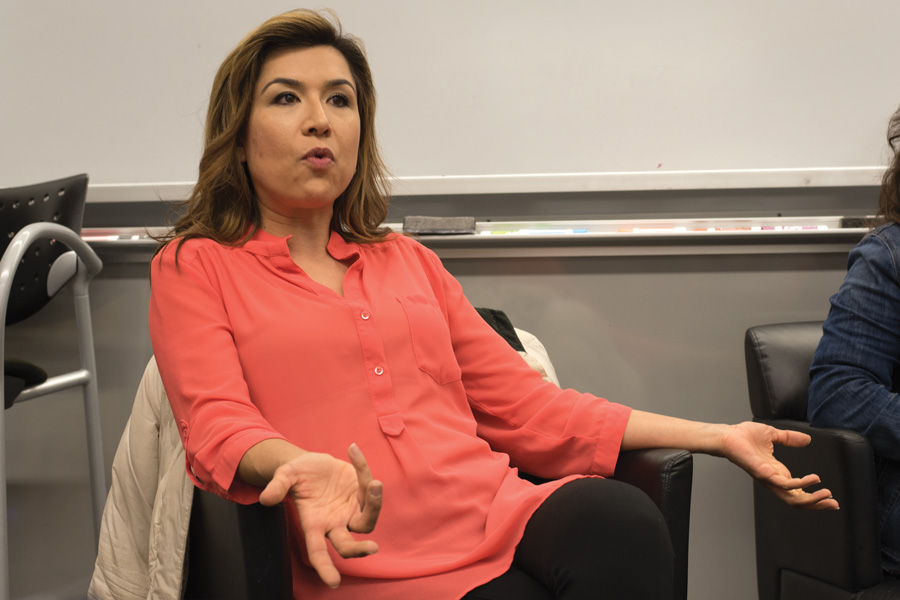Medill faculty talk about activism in journalism, staying neutral
Allie Goulding/The Daily Northwestern
Lecturer Jazmin Beltran speaks about activism and journalism on Wednesday. Beltran said that journalists have to personally decide if they want to appear at protests.
May 11, 2017
Journalists should safeguard their credibility and impartiality when deciding if they want to appear at protests and watching what they post online, Medill Prof. Mei-Ling Hopgood and lecturer Jazmin Beltran said in a talk about advocacy and journalism on Wednesday.
About 25 people attended the event in the McCormick Foundation Center — sponsored by the Asian American Student Journalists and the National Association of Hispanic Journalists — which focused on the intersection of advocacy and journalism.
Beltran, a Univision reporter, said she covers at least one protest per week but would never attend one personally if she wasn’t on assignment because her attendance may show a political leaning or opinion.
“I go to all of (the protests) because I cover them,” Beltran said. “I am everywhere, and I cover everything, but I would never go on my own, even the Women’s March … That doesn’t mean that I don’t care about women. Obviously I care, you know, I am one.”
But Hopgood said she went to the Women’s March in January after weighing the reasons why she should and should not go. She said this was the first year she participated in a national march since becoming a professor.
Hopgood, a former Washington correspondent, said she felt that she could attend the march because she doesn’t cover politics anymore and instead is a freelance journalist.
She added that journalists should make conscious decisions about whether they want to attend protests based on what they can “live with professionally and personally” and their company’s policies.
“I made a decision that I thought I can live with, and I wanted my daughters to be a part of it. I wanted them to see it,” Hopgood said, in reference to the Women’s March. “It is so hard during this time to stay neutral.”
Beltran said she doesn’t donate to any political campaigns or give money to organizations because she covers a wide range of topics and wants to avoid any conflicts of interest. She said a journalist can never be too careful to remain neutral — she said she doesn’t even text about politics.
But Beltran said journalism can be a form of activism by informing people with compelling stories to empower them.
“In telling the story and being informed and doing a really, really good job and asking the questions that you’re supposed to ask, you are doing that,” Beltran said. “I don’t feel like I’m silent about every topic.”
Medill sophomore Michelle Baik, one of the moderators of the event, told The Daily that hearing from the professors was important to her as a student journalist.
Baik said she liked their emphasis on journalists’ humanity in relation to sources.
“It’s something that I always believed in,” Baik told The Daily. “But it’s cool to have an authority figure and a professor and someone who’s on air tell me that and affirm me of my beliefs and just tell me that being a journalist is a good thing.”
Email: ericasnow2019@u.northwestern.edu
Twitter: @ericasnoww



